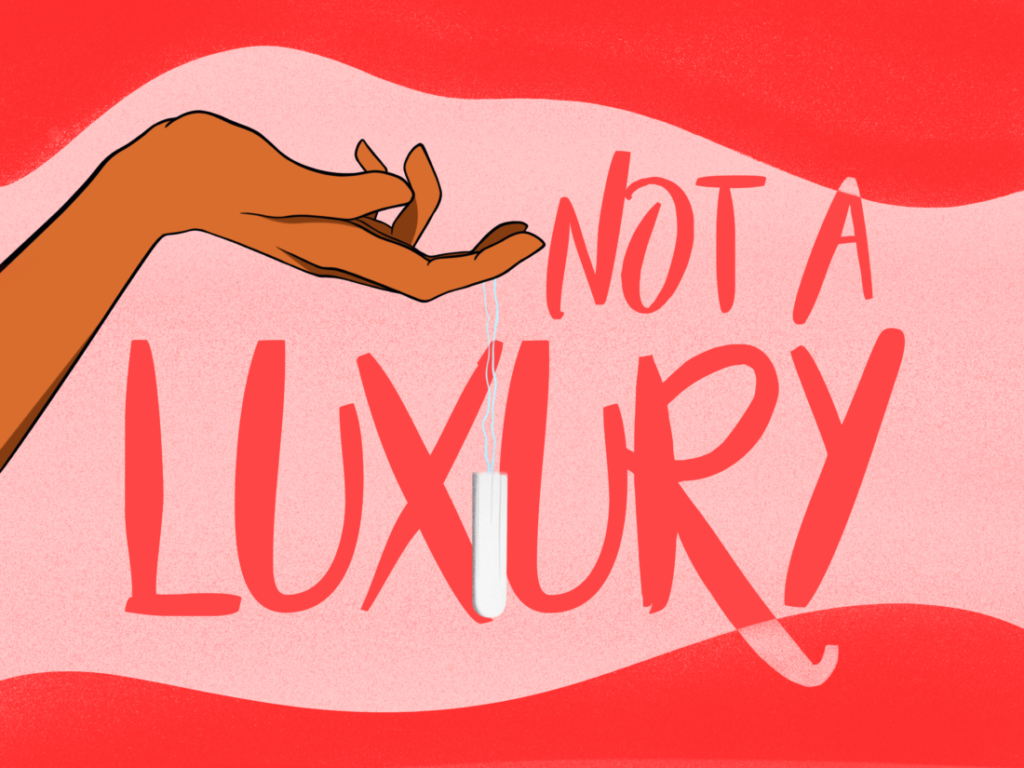Women still suffer from yet another unfair advantage in today’s society. Tampons, sanitary towels, pads, and pretty much anything else that would stop menstrual fluids from spilling are essential feminine requirements that are treated as luxury goods in the United States and many other countries.
It is estimated that the average woman receives 450 periods, within their lifetime. If we were to sum up the expected cost of $10 each month for 450 months, it would come out to almost $4,500 for basic sanitation supplies, tax included. Although that amount might not seem like much, it all adds up in the end. Why are women forced to pay the bill for Mother Nature’s action? We have no control over the blood flow in our uterus, which each month informs us that we are not pregnant and causes cramps and stiffness in our bodies for three to seven days. Periods are one of the approximately 99 issues that females must cope with. It seems absurd that we must spend a sizable sum of money only to stop illnesses from spreading and blood stains from appearing.
Feminine products are essential and serve purposes beyond simple hygiene. Although the fear is still present even with a sturdy pad in place, it is pleasant to not have to worry about having an unsightly stain on my jeans. However, the idea that periods are considered a luxury baffles me much. Technology? It is a luxury. Jewelry? That is also a luxury. a new vehicle? Another luxury. So how does our monthly flow come to be perceived as a luxury?

Sometime in 2016, Youtuber Ingrid Nilson had the opportunity to sit down with the POTUS and asked why feminine products were considered “luxury goods” because all women would agree that menstruation is not luxurious. Barack Obama said ‘I have to tell you, I have no idea why states would tax these as luxury items, I suspect it’s because men were making the laws when those taxes were passed.”
Period products are simply used to help with menstrual cycles. However, they cost more and have more stigma than products such as toilet paper and diapers. Much of the stigma comes from how we label these products. To begin with, we should not be calling them “feminine” or “luxurious.”
Where would all of this knowledge lead us, then? More discourse will inevitably result in more education, affecting how everyone from lawmakers to regular citizens perceives eras. Swindell claims that as more individuals accept these concepts, costs will decrease and more people will have access to these goods.
If you found this insightful, make sure to connect with us on our socials and click here for more content
Instagram: https://www.instagram.com/reel/CqdJR_rIKt4/?utm_source=ig_web_copy_link
Facebook: Sanicleus